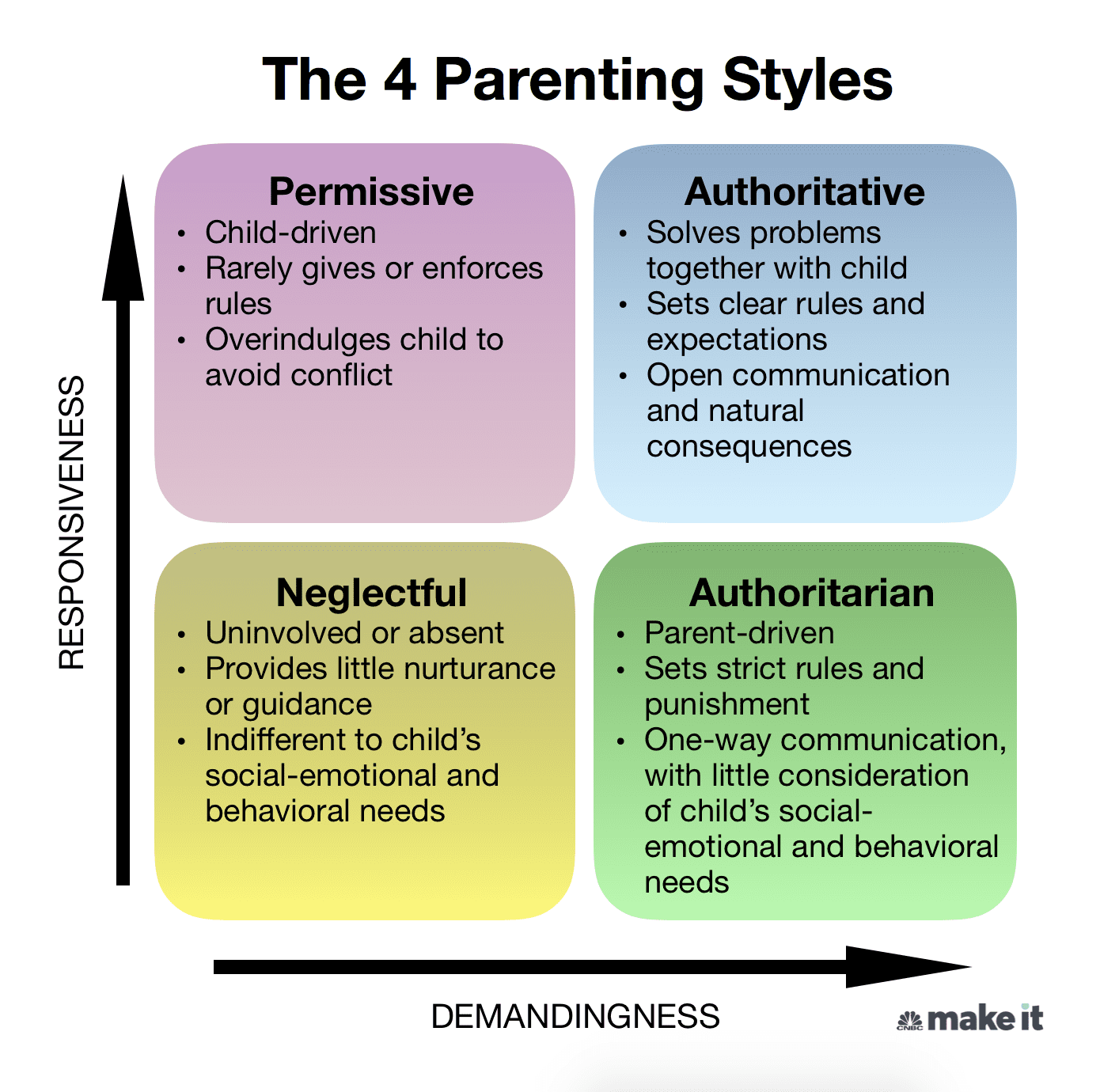The concept of authoritative parenting was developed by developmental psychologist Diana Baumrind in the 1960s. It is probably the best balanced and most efficient parenting method, which is often confused with authoritarian parenting. However, they are two radically different systems.
To start, let's take a look at the four main styles of parenting:
1. Authoritative parenting (Good job!)
Relies on encouragement and positive reinforcement.
2. Authoritarian parenting (Because I said so!)
Is very strict and relies on punishment.
3. Permissive parenting (Parents as Friends)
This style is lenient and nurturing, with very few concrete demands, rules, and discipline.
4. Uninvolved or neglectful parenting (Fend for yourself!)
This style has low communication and also few parenting demands and rules.
Authoritative parenting takes effort, patience, and consistency and implies encouragement and positive reinforcement rather than threats or punishment. Authoritative parents tend to set clear rules and boundaries for their children, giving them the support and resources needed to meet those expectations while leaving room for discussion and compromise in the relationship.
Here are some good examples of what authoritative parents do:
-
They set clear expectations, rules, and boundaries for their kids.
-
They are comfortable saying "no" to their kids.
-
They follow through with consistent and fair discipline.
-
They listen to their kids.
-
They encourage their kids to have an opinion.
-
They are warm, empathetic, loving, and nurturing.
-
They foster in their kids the values of being independent.
-
They support their kids' interests and ambitions.
Authoritative parents strive to be communicative and good role models. This is an effective method that allows parents to set expectations and boundaries while providing the children all the patience, support, and love they need to grow into well-adjusted, happy, and successful adults.

Picture: Parenting Styles (Francyne Zeltser / cnbc.com)



